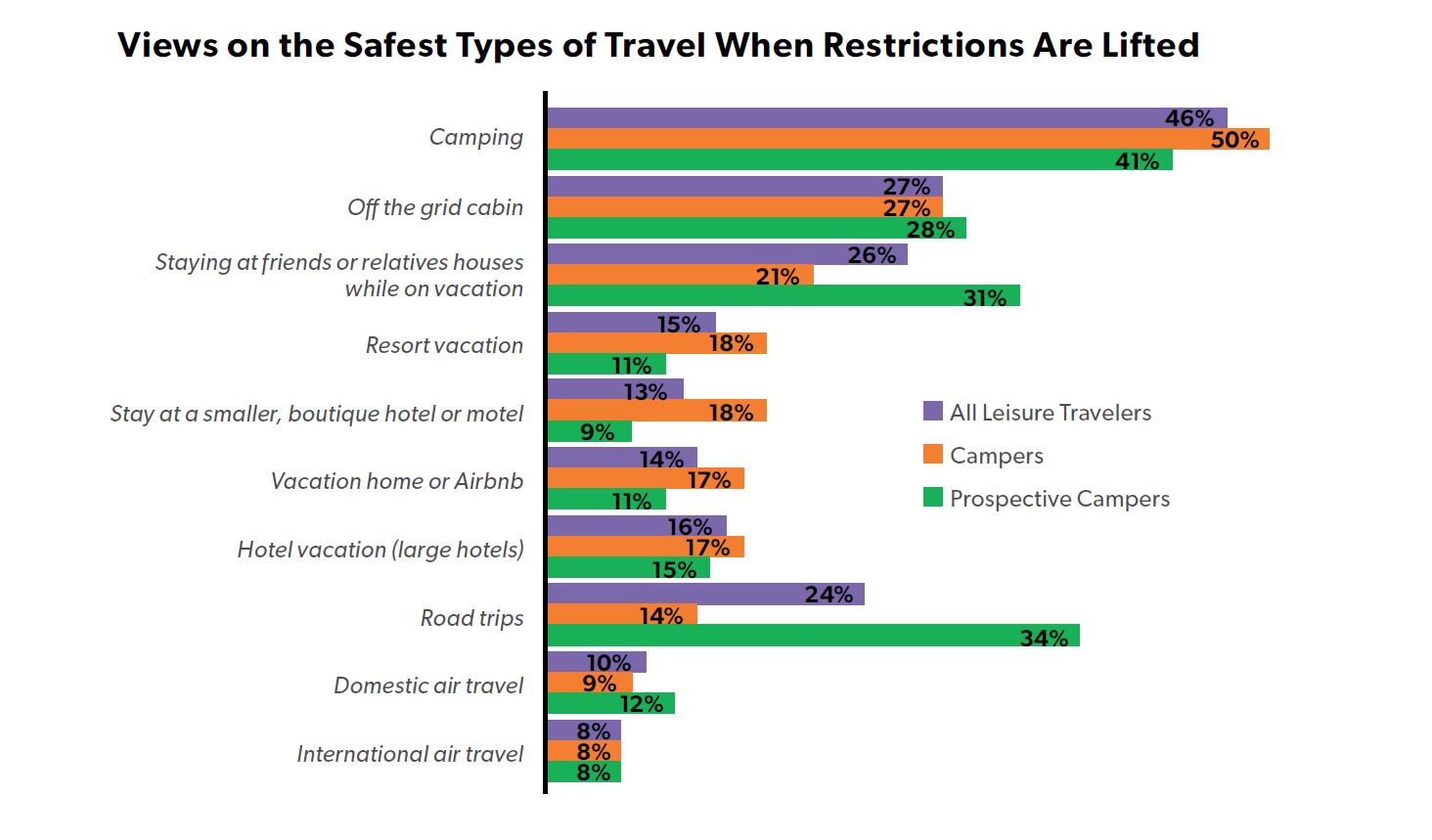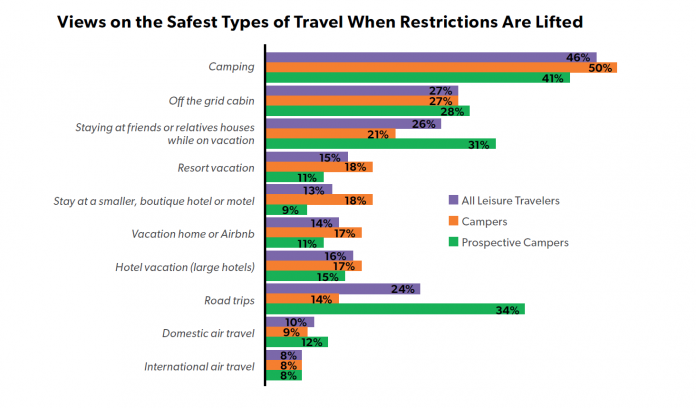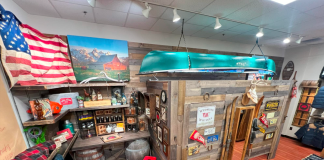As North Americans look to regain a sense of normalcy among the global Coronavirus pandemic, new research from Kampgrounds of America suggest the camping industry will rebound sooner than other forms of travel, and may even gain strength later in the year due to its consideration as a “safe way to resume travel” among COVID-19 health precautions. Prior to the pandemic, camping accounted for 11% of all leisure trips while post COVID-19, camping may account for 16%, according to a special edition of Kampgrounds of America’s annual North American Camping Report – “North American Camping and the Effects of COVID-19.”
Leisure traveler participants of the special survey, conducted April 27-30, 2020 in order to obtain real-time perspective on camping, shows that campers are eager to resume their activity, with 41% still planning to take their planned camping trips and only 13% indicating they will postpone. Interest among prospective campers – those who did not camp pre-COVID-19 but now say they are interested in camping – is also promising. A third of these prospective campers now express interest in camping with almost half (46%) saying they want to spend time outdoors after staying home for so long. More than one third of leisure travelers said camping could making it easier to practice social distancing while traveling.
Among all leisure travelers surveyed, 46% rank camping as the safest type of trip to take once travel restrictions are lifted. In addition to being a safe way to travel, camping fulfills a desire to be outdoors, which, not surprisingly, 43% of leisure travelers say is now more important as a result of the pandemic.
“As we begin to define what our ‘new normal’ looks like, camping is intrinsically poised to meet the desire to travel amidst current health and safety concerns,” said Toby O’Rourke, president and CEO of KOA. “We believe in the health and societal benefits of being outdoors and, when appropriate under local state and provincial guidelines, Kampgrounds of America will be ready to welcome seasoned and prospective campers to our campgrounds.”
When campers were asked how long it will be before they go camping after restrictions in their area are lifted, a majority (54%) say within one to two months; 21% of campers say they feel it is safe to go camping now. But COVID-19 could impact how campers camp in the short term, and we’ll likely see shifts including smaller group sizes. Thirty-one percent of campers are planning to camp with two people (compared to 25% in 2019) and 36% are planning to camp with three to five people (compared to 41% last year).
Seven in 10 campers are planning to camp closer to home, yet 68% are more willing to travel to less popular locations in order to avoid overcrowding in places such as national parks or national monuments.

Source: KOA
There also appears to be increase interest in RV camping. RVs, by affording private spaces and private bathrooms, alleviate concerns of cleanliness at other accommodations such as hotels or resorts, as well as interest in avoiding communal facilities, said KOA. About half of campers and prospective campers say the availability of private bathrooms in a cabin or RV will influence where they stay.
Overall, once travelers feel it’s safe to travel again, spending time outdoors with family is what leisure travelers are looking forward to most. And while the future of distance learning and working remotely remains uncertain, 38% of campers say these factors could definitely allow them to extend their camping season, potentially even camp more often. For campers with children in the household, this increases to 45%.
The sampling methodology targeted a randomly selected sample of U.S. and Canadian households who participate in leisure travel.








